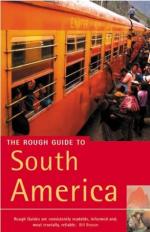|
This section contains 5,735 words (approx. 20 pages at 300 words per page) |

|
Systematic study of South American indigenous religions began with the arrival of the first Europeans. Almost immediately after landing in the New World, scholars, priests, scribes, and soldiers began describing and assimilating the Indians' peculiar and, to them, outlandish practices for their Old World sponsors and public. The confrontation between these early explorer-chroniclers and their indigenous subjects established the basis of a religious opposition between Christian reformer and "pagan" Indian; and it is no exaggeration to say that these early accounts set the stage for all later scholarly and scientific studies of the continent's diverse religious traditions.
All early accounts of religion were driven by the practical needs of empire. For the Spaniards, the political importance of understanding and analyzing native religious belief first arose through their encounters with the powerful Inca state of highland Peru. Chroniclers such as Juan de Betanzos (1551), Pedro Cieza...
|
This section contains 5,735 words (approx. 20 pages at 300 words per page) |

|



